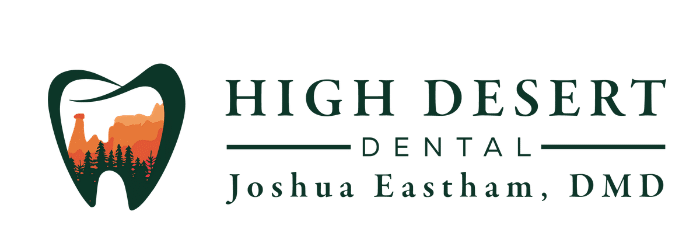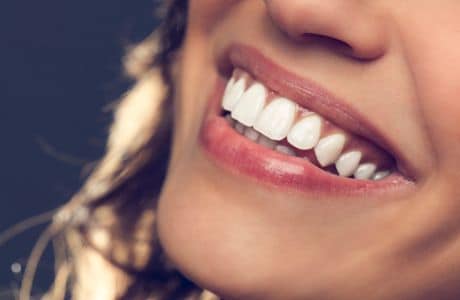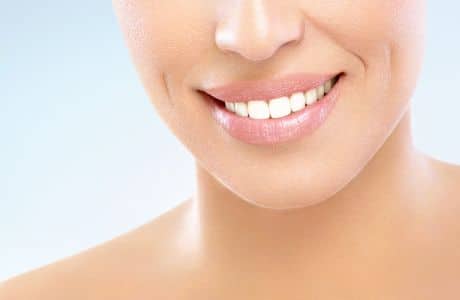Benefits of Preventive Dentistry

Why Preventive Care is Key to Long-Term Oral Health

When it comes to maintaining a healthy smile, prevention is key. Preventive dentistry is an essential practice that focuses on maintaining oral health and preventing dental issues before they become major problems. Regular dental care, like cleanings, exams, and at-home practices, can significantly reduce the risk of cavities, gum disease, and tooth loss. At High Desert Dental, we believe that preventive care is the foundation of long-term oral health, and as the best dentist in Grand Junction, CO, we are dedicated to helping you maintain a healthy, beautiful smile for years to come.
What is Preventive Dentistry?
Preventive dentistry involves all the steps you can take to keep your teeth and gums healthy, reducing the chances of developing dental issues in the first place. This includes both daily habits like brushing and flossing, as well as professional care such as dental cleanings, checkups, and early intervention when necessary. By incorporating preventive practices into your routine, you can avoid complex treatments, saving both time and money in the long run.
1. Prevents Tooth Decay and Cavities
Cavities are one of the most common dental issues, yet they are also one of the most preventable. Brushing your teeth twice a day with fluoride toothpaste, flossing regularly, and using mouthwash can help remove plaque and food particles, preventing the buildup of harmful bacteria that can lead to cavities. However, even with the best at-home care, plaque can still build up, which is why professional cleanings are essential. At High Desert Dental, we recommend scheduling cleanings every six months to ensure plaque and tartar are removed before they cause damage to your teeth.
2. Protects Your Gums from Disease
Gum disease, or periodontal disease, affects a large portion of the population and is one of the leading causes of tooth loss. It begins as gingivitis, a mild form of gum disease that causes irritation, swelling, and redness of the gums. However, if left untreated, it can progress to more severe stages, causing significant damage to the gums, bone, and teeth. Preventive dentistry helps reduce the risk of gum disease by promoting proper brushing and flossing techniques, along with regular cleanings and exams that allow your dentist to catch early signs of gum issues before they escalate.
3. Improves Overall Health
Your oral health is closely linked to your overall health. Research has shown that gum disease and other oral health issues can increase the risk of serious conditions like heart disease, stroke, diabetes, and even pregnancy complications. By focusing on preventive dental care, you not only protect your teeth and gums but also reduce your risk for these systemic health issues. Regular dental checkups allow your dentist to identify early signs of problems that might affect your general health, enabling early intervention to prevent complications.
4. Saves Money on Dental Treatments
One of the key benefits of preventive dentistry is that it can save you money in the long term. Regular checkups and cleanings help identify issues early when they are easier and less expensive to treat. For example, catching a small cavity before it becomes a large one that requires a root canal or crown can save you hundreds of dollars. Preventive care also reduces the risk of gum disease and tooth loss, which may require costly treatments like periodontal surgery or implants. By investing in preventive care, you can avoid these expensive procedures and keep your dental bills low.
5. Maintains a Beautiful Smile
Preventive dentistry isn’t just about avoiding dental problems – it’s also about keeping your smile bright and healthy. Regular cleanings help remove plaque and tartar buildup, which can cause staining and discoloration. Preventive care also addresses issues like teeth grinding, which can wear down enamel and lead to chipped teeth. Regular exams can help identify any potential issues that may affect the appearance of your smile, allowing your dentist to recommend solutions early, so you can enjoy a beautiful smile for years to come.
6. Early Detection of Dental Problems
One of the greatest advantages of preventive dentistry is the early detection of potential dental problems. During regular checkups, your dentist will examine your teeth, gums, and mouth to spot any issues, such as cavities, gum disease, or oral cancer. The earlier these problems are detected, the easier they are to treat, and the less invasive the treatment will be. For example, a small cavity can be filled easily, but if left untreated, it can lead to root infection, requiring a root canal. Early detection is key to preserving your natural teeth and avoiding costly treatments.
7. Personalized Dental Care
At High Desert Dental, we understand that every patient is different. That’s why we take a personalized approach to preventive care. We work with you to develop a plan that fits your specific needs, whether it’s managing sensitivity, preventing cavities, or addressing gum issues. We take the time to educate you about the best oral hygiene practices for your lifestyle, ensuring you have the knowledge and tools you need to maintain your oral health between visits.
8. Family-Friendly Preventive Care
Preventive dentistry is important for patients of all ages. For children, regular dental checkups ensure their teeth and gums develop properly. For adults, preventive care helps maintain the health of existing teeth while also identifying issues like teeth grinding or orthodontic needs. Seniors also benefit from preventive care to protect their remaining natural teeth, manage gum disease, and address concerns like dry mouth or tooth loss. At High Desert Dental, we provide comprehensive care for the entire family, so you can rest assured that everyone’s oral health is in good hands.
Contact Us
Preventive dentistry is the best way to maintain long-term oral health and avoid serious dental problems. By taking proactive steps, such as regular checkups, cleanings, and healthy habits, you can reduce the risk of cavities, gum disease, and other dental issues. At High Desert Dental, we are committed to providing the highest quality preventive care to help you maintain a healthy smile for life. As the best dentist in Grand Junction, CO, we’re here to support you on your journey to optimal oral health.
If you’re due for a dental checkup or want to learn more about the benefits of preventive dentistry, contact High Desert Dental today to schedule your appointment. We’re here to help you achieve a lifetime of healthy smiles!










